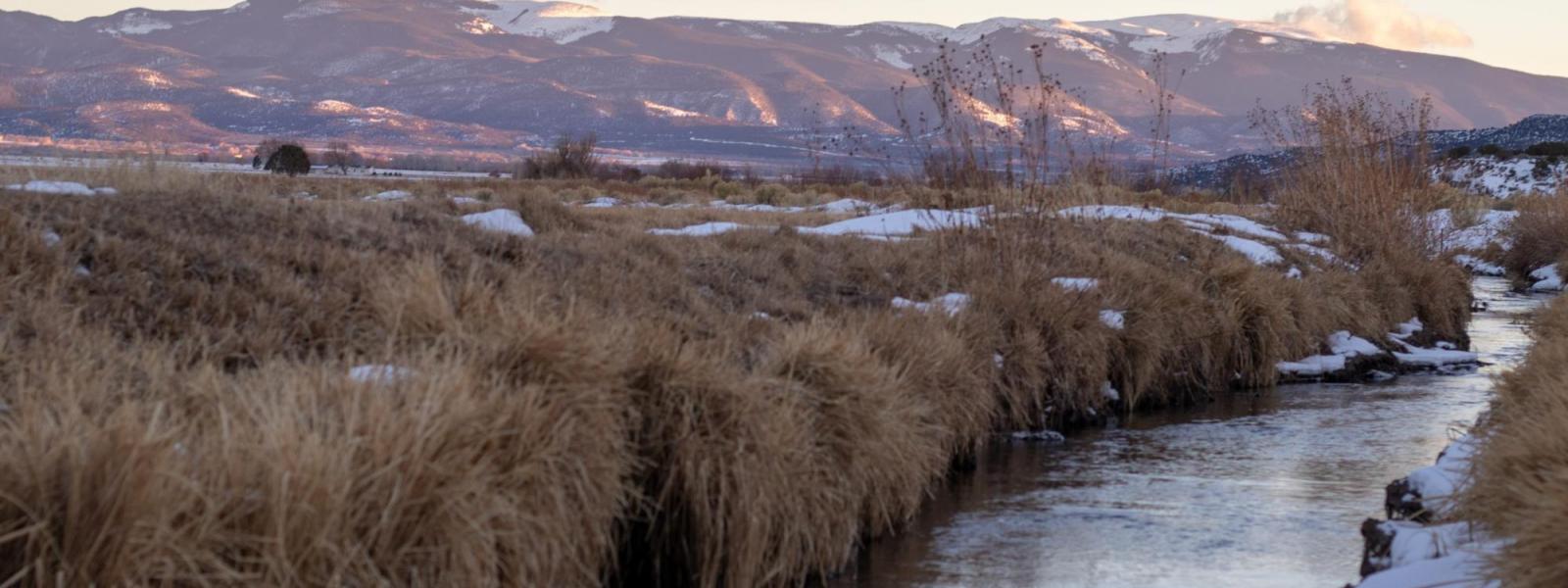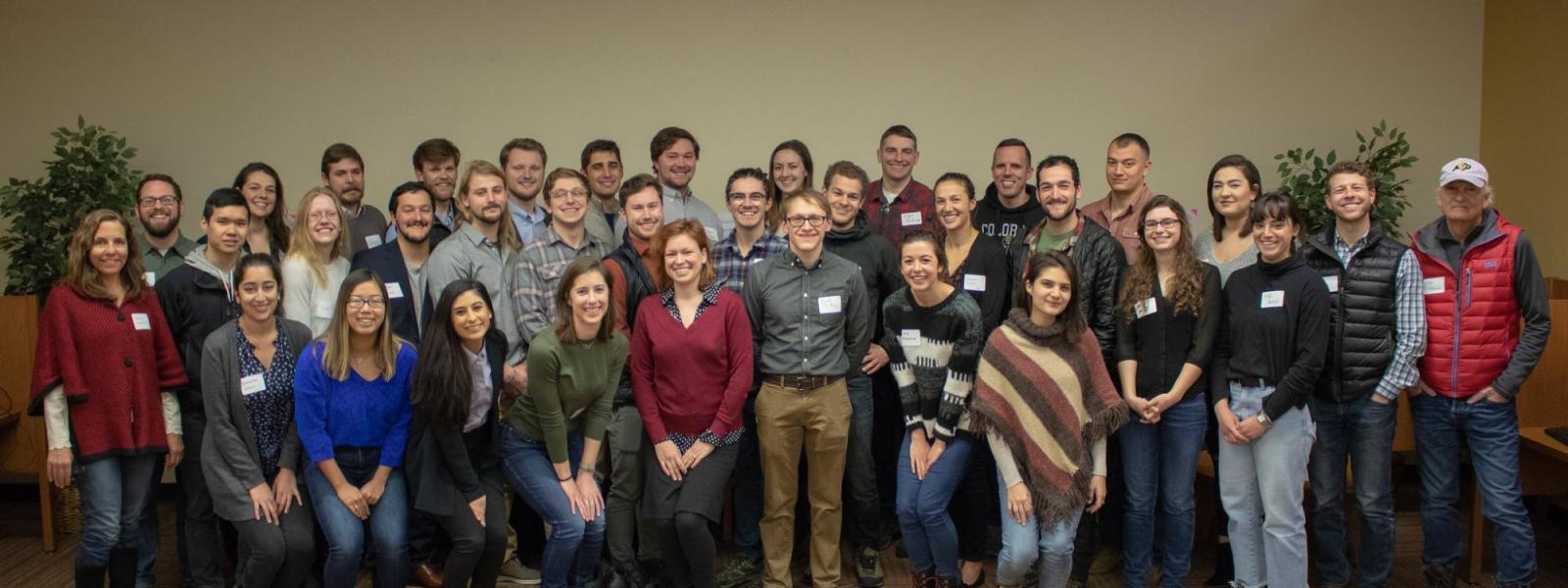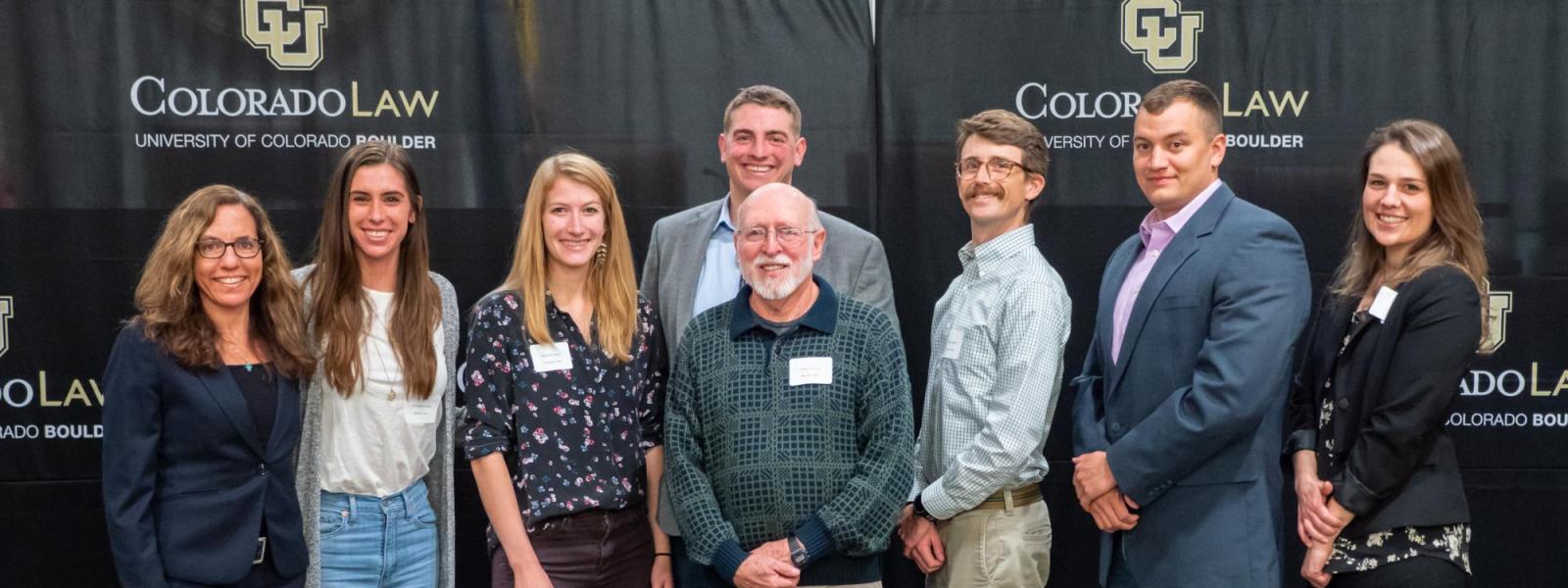Acequia Assistance Project
The Acequia Assistance Project (AAP) is a student run environmental justice project of the Getches-Wilkinson Center for Natural Resources, Energy, and the Environment at the University of Colorado Law School. As water becomes scarcer, acequias offer a powerful model of alternative water administration and use. To maintain their viability, the acequia community must first address some key challenges. The project’s mission is to assist low-income farmers in Colorado’s San Luis Valley (SLV) by protecting their water rights and ensuring their historic sustainable farming practices remain viable. The project also serves the law school's educational mandate by offering enrolled students the opportunity to gain practical legal experience by completing pro-bono legal assistance work, under supervision of a practicing attorney. Student attorneys work with private landowners and individual acequias in Costilla and Conejos counties to write by-laws, conduct title search, confirm and file water rights, and write articles of incorporation. The project also supports student teams that conduct research on legal, policy, and historical issues relevant to the acequia community and the project’s partners.
About acequias
Acequia is an Arabic word that means "water bearer." An acequia is a physical irrigation system – a ditch — but the term "acequia" in northern New Mexico and southern Colorado also describes a philosophy about water and community. That philosophy encompasses the concept that water is so essential to life that it is a communal resource, one which must be shared. This philosophy shapes intersection of the human and natural environments in the Southern Colorado watersheds in which acequias are found and has created a resilient natural and cultural system. Acequias are found along the southernmost part of Colorado – including four of the state’s poorest counties: Costilla, Conejos, Huerfano, and Las Animas. While water is wealth throughout the arid West, to the small-scale farmer in these traditional communities the acequia culture represents even more: Acequias are the means by which you support your family and by which you participate in your community. A Spanish dicho (mantra) succinctly provides, “Tierra es la Madre y la Agua es su Sangre” – Earth is the Mother and Water is her Blood.
While acequias are legally treated as any other water right within the prior appropriation system in Colorado, their governance system makes them unique. All irrigators along an Acequia work together to ensure each land owners water needs are met. For example, in times of water scarcity, ditches cooperate to ensure an equitable distribution of water, or when that is not physically possible, a sharing of fields. As we look to the future, acequias will offer an interesting model of alternative water administration and use. However, in order for acequias to remain viable, the acequia community must first address some key challenges. For generations, acequias have operated informally – with many remaining unincorporated and without bylaws.
Our Partners
The Acequia Assistance Project would not be possible without the help of local attorneys who donate their time pro bono to help with these complex issues. In addition to the attorneys mentioned above, the project is lucky to work with the following partners:
- Kelcey Nichols, Wood Nichols, LLC
- Megan Gutwein, Berg, Hill, Greenleaf & Ruscitti
- Allan Beezley and Marie Vicek, Beezley PC
- Sarah Pizzo, Esq.
- Will Davidson, Moses, Wittemyer, Harrison & Woodruff
- Scott Holwick, Lyons Gaddis
- Julia Guarino, Western Environmental Law Center
- Gunnar Paulsen and Cassidy Woodard, Porzak, Browning & Bushong
- Matt Nadel, Mark Detsky, and Star Waring, Dietze and Davis, P.C.
- David Bower, Johnson & Repucci LLP
- William Caile, Holland & Hart
- Bradley Grasmick, Lawrence Custer Grasmick Jones & Donovan LLP
- Peter Nichols, Berg, Hill, Greenleaf & Ruscitti
- Enrique Romero, New Mexico Attorney General's Office
- Virginia Sargent, Moses, Wittemyer, Harrison and Woodruff P.C.
- Andrew Teegarden, Water Fellow, Getches-Wilkinson Center
Student Deputy Directors
The Acequia Assistance Project is also led by student deputy directors representing each graduating class.
- Hannah Loiselle and Megan Mooney, Class of 2026
- Michaela Krulee and Sierra L'Esperance, Class of 2027
Contact the Director
In the News
The Academy's Role at the Intersection of Environmental and Restorative Justice: Putting Law into Practice at the Acequia Assistance Project, 51 N. Ky. L. Rev. 125 (Westlaw login required).
How Law Students are Keeping a Historic Water Distribution Tradition Alive in Southern Colorado, Coloradan Alumni Magazine
A 1,200-year-old water concept flows through Colorado's Costilla County, Colorado Politics
In San Luis, a vision of rebirth for a once-bustling downtown, Mad Agriculture Magazine
Acequia Assistance Project Awarded 2022 ABA Distinguished Achievement in Environmental Law and Policy Award, Colorado Law
Protecting Water Rights for Colorado Farmers, Amicus alumni magazine
Learning to Be Lawyers One Ditch at a Time, CU Boulder Office for Outreach and Engagement
Students Help Farmers Through the Acequia Project, Colorado Law
Acequia Assistance Project Trainings
- Colorado Acequia Handbook 3rd Edition (revised 2019)
- The Hallett Decress and Acequia Water Rights Administration on Rio Culebra in Colorado
- Introduction to Water Resource Issues in Div 3.
- Division 3 – Alamosa Rio Grande Basin
- Amended Costilla Creek Compact Article





